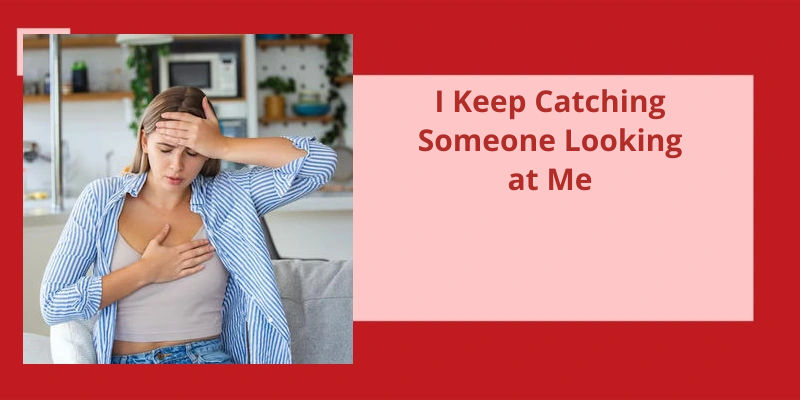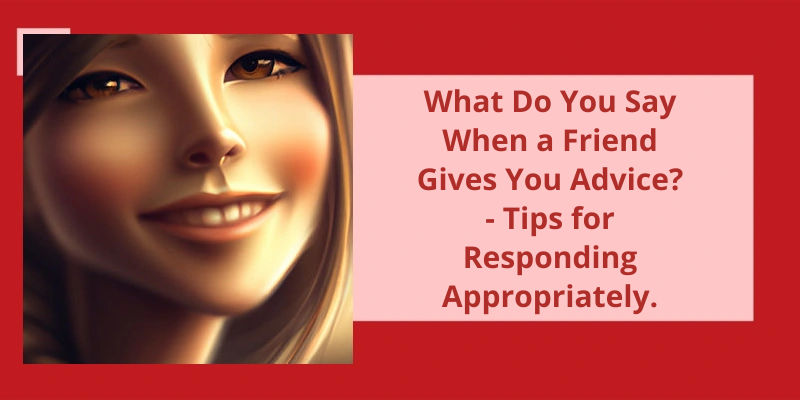Have you ever experienced that feeling of being watched, only to turn and catch someone's gaze fixated on you? It's a strange sensation, causing a mix of curiosity and unease. The question that often arises in such situations is: why? Why is this person constantly looking at me? The possibility that this individual is attracted to you might immediately cross your mind. After all, it's a natural human behavior to be drawn to someone who catches our eye. However, there could be other explanations as well. Perhaps this person is simply shy or maybe, they’re already involved with someone and therefore choose not to approach you. It's intriguing how the cycle continues, as you find yourself looking back at this person, showing a reciprocated interest without words. This non-verbal communication can be quite magnetic, intensifying the attraction between two individuals. However, if this constant gaze makes you uncomfortable, consciously avoiding eye contact might be a viable solution. Ultimately, it's essential to trust your instincts and decide how to navigate this captivating yet enigmatic situation.
What Does It Mean When You Catch Someone Staring at You and They Look Away Fast?
Have you ever experienced that moment when you catch someone staring at you, but they quickly look away as soon as your eyes meet? It can be a perplexing and intriguing situation to find yourself in, leaving you wondering about the meaning behind their actions. Interestingly, there are a few possible interpretations for this behavior, which can shed some light on the situation.
Another interpretation could be linked to discomfort. Some people may stare out of curiosity or intrigue, not necessarily due to romantic or platonic interest. However, when their gaze is reciprocated, they might feel uneasy or self-conscious about their intent being discovered. To avoid any potential awkwardness, they retreat by looking away rapidly, hoping to evade suspicion.
People often look around and observe their surroundings without much intention or deep thought. However, when they accidentally lock eyes with someone they’ve been observing, their instinct may be to look away swiftly, more as an automatic response rather than a deliberate action.
Moreover, cultural factors may also play a role. Eye contact and gaze norms vary across different cultures, and some individuals may be more uncomfortable or apprehensive about direct eye contact than others.
Remember, it’s important to approach such situations with empathy and understanding, as everyone has their unique ways of navigating social interactions and expressing their feelings.
What to Do if Someone Caught You Staring?
What to do if someone caught you staring? If you ever find yourself in a situation where youve been caught staring at someone, it’s important to remain calm and handle the situation with grace. The natural instinct is to immediately turn your head away in embarrassment, but this can make the situation even more awkward and apparent.
By focusing on something behind them, you create the illusion that you were looking at something beyond their field of vision, rather than directly at them. This can help diffuse the tension and prevent any uncomfortable conversations or confrontations. It’s important to give it a few seconds before naturally turning your head away, as this allows the person time to process the situation and gives the impression that you simply got momentarily distracted.
In addition to remaining calm and redirecting your focus, it’s also important to respect personal boundaries. If you’ve inadvertently made someone uncomfortable by staring, it’s crucial to give them space and refrain from repeating the behavior in the future. It can be helpful to remind yourself to be mindful of your surroundings and the people around you, rather than getting lost in your thoughts or daydreams.
If the person who caught you staring confronts you or seems upset, it’s important to apologize sincerely and acknowledge your mistake. Taking responsibility for your actions can help defuse the situation and show that you understand and respect their feelings. Remember, everyone makes mistakes, and it’s how we handle them that truly matters.
Strategies for Increasing Self-Awareness and Avoiding Staring
- Reflect on your thoughts, feelings, and behaviors to gain a deeper understanding of yourself.
- Practice mindfulness to bring awareness to the present moment and your own thoughts.
- Engage in self-reflection exercises or journaling to explore your emotions and experiences.
- Seek feedback from trusted friends, family members, or mentors to gain insight into your blind spots.
- Engage in activities that promote self-discovery, such as therapy or personal development workshops.
- Challenge your own biases and preconceived notions to develop a more open and inclusive mindset.
- Regularly evaluate your actions and intentions to ensure they align with your values and goals.
- Practice active listening and empathy to better understand and connect with others.
- Cultivate a growth mindset, embracing challenges and setbacks as opportunities for personal growth.
- Take regular self-care breaks to recharge and replenish your physical, mental, and emotional well-being.
But what about those times when you catch someone looking at you repeatedly? It could mean something more than just seeking attention or making a connection. In fact, it might indicate a deeper interest or attraction towards you.
What Does It Mean if You Keep Catching Someone Looking at You?
If you continually find yourself catching someone looking at you, it’s worth considering what their intentions may be. One possible explanation is that the person may have an interest in you. People who’re attracted to someone often try to catch their eye as a way to seek attention and establish a connection. This behavior can be particularly common among shy individuals, who may use eye contact as a subtle way to express their interest without risking direct conversation.
According to relationship and etiquette expert April Masini, shy individuals may actively search for opportunities to establish eye contact with someone they’re attracted to. Therefore, if you keep catching someone looking at you, it might be a sign that they’re seeking your attention and are interested in getting to know you better.
Another possibility to consider is that the person looking at you could be seeking your approval or validation. They may value your opinion or respect your judgement, leading them to seek your eye contact for reassurance or affirmation. This behavior could be especially noticeable in professional or social situations where the person may be trying to impress you or gain your trust.
On the other hand, catching someone looking at you could also be purely coincidental. It’s possible that you’ve a distinctive presence or an engaging aura that naturally draws peoples attention.
However, it’s essential to be cautious in jumping to conclusions, as there could be various other explanations for this behavior. While eye contact can be an initial step towards building a connection, it’s always best to communicate directly to understand someones true intentions and feelings.
The Psychology Behind Eye Contact: Delve Into the Psychological Reasons Why People Seek Eye Contact, Including the Desire for Connection, Validation, or Intimacy.
- Connecting with others
- Seeking validation
- Desire for intimacy
Perhaps you’ve noticed that lingering gaze from someone across the room, causing you to wonder what it signifies. Well, it’s often an attempt to establish a connection and spark curiosity. When a man repeatedly steals glances at you, it’s a clear sign that he’s drawn towards you and desires to unravel the mystery that surrounds your persona. You might find yourself wondering what he sees and what he truly wants to uncover.
What Does It Mean if You Catch Someone Glancing at You?
Is there a connection waiting to be formed? Is he interested in striking up a conversation with you? Perhaps he finds you intriguing and wishes to explore the possibility of getting to know you better. When someone continuously glances at you, it could be a subtle invitation to approach them or initiate a conversation.
However, it’s essential to consider other factors as well. Maybe he finds you visually appealing, or he appreciates your style and aura. Perhaps your presence in the room has caught his attention, and he simply cant help but steal glances at you. Nevertheless, if his gaze lingers, it suggests more than just a passing moment of interest.
When someone keeps catching your eye, they may have questions swirling in their mind. They might be contemplating what kind of person you are, your interests, or even your personality traits. By continuously looking at you, they hope to gather more information about you as a person and discover if there’s a potential connection between you both.
It’s worth mentioning that while catching someone looking at you can be exciting and potentially flattering, it’s vital not to jump to conclusions too quickly. Observing prolonged glances from someone could mean multiple things, and it’s crucial to approach the situation with an open and discerning mindset. Communication, be it non-verbal or otherwise, often contains numerous layers and nuances that can easily be misinterpreted.
Ultimately, if you consistently find someone glancing at you, it may be worth taking the initiative to strike up a conversation or show subtle signs of interest. If the interest is mutual, it could develop into a beautiful connection. However, it’s essential to maintain awareness and not become overly fixated on someones glances. The most authentic connections are built on a foundation of genuine communication and understanding.
The Role of Cultural and Societal Factors in Interpreting Glances and Eye Contact
- The influence of cultural norms on the interpretation of glances and eye contact
- The role of societal norms in determining the meaning of glances and eye contact
- Differences in the perception of glances and eye contact across cultures
- How cultural and societal factors shape the significance of eye contact in different contexts
- The impact of cultural upbringing on individual interpretations of glances and eye contact
- Cross-cultural misunderstandings that can arise due to differences in interpreting eye contact
- The relationship between cultural values and the importance placed on maintaining eye contact
- The role of eye contact in nonverbal communication within different cultures
- How cultural expectations influence the way individuals use eye contact to convey meaning
- The role of societal norms in shaping the acceptable duration and intensity of eye contact
What Does It Mean When a Guy Is Keeping an Eye on You?
What does it mean when a guy is keeping an eye on you? Well, it could be a telltale sign that hes interested in you. If you find yourself catching his gaze too often, it’s likely that he wants you to give him some sort of green light – a sign that you like him back. Sometimes, men can be a bit cautious and unsure when it comes to approaching someone theyre attracted to, so they rely on non-verbal cues to gauge your interest.
In these situations, your body language becomes paramount in sending the right signals. If youre interested in getting to know him better, don’t be afraid to use your body language to give him the okay to approach you. Make sure you maintain eye contact and smile when you catch him looking at you. This communicates that youre open to further interaction and may even encourage him to make a move.
Additionally, pay attention to your posture. Stand or sit up straight, and exude confidence and positivity through your body language. This can be a subtle yet powerful way to attract his attention and let him know that youre receptive to his advances. On the other hand, if you find yourself constantly avoiding his gaze or crossing your arms, it may signal disinterest or that youre not ready for a connection.
It’s important to note that everyones behavior and interpretation may vary, so it’s always best to rely on direct communication if you want to clarify someones intentions. But if youre interested in a guy who keeps looking at you, don’t be afraid to reciprocate with subtle yet inviting body language. Sometimes, a simple smile or maintaining eye contact can be enough to signal your interest and open up a possibility for further connection. So, embrace your body language as a powerful tool to communicate and see where it leads you!
Signs That a Guy Is Attracted to You Beyond Just Keeping an Eye on You
- He initiates conversations with you frequently.
- He maintains eye contact and smiles when talking to you.
- He finds excuses to be around you or spend time with you.
- He displays open body language, such as facing you and leaning in when conversing.
- He remembers small details about your conversations or things you’ve shared.
- He compliments you sincerely and frequently.
- He actively listens and engages in meaningful conversations with you.
- He playfully teases or jokes with you.
- He shows signs of nervousness or fidgeting when you’re around.
- He tries to impress you by showcasing his talents or achievements.
- He shows genuine concern and offers help when you’re in need.
- He reacts positively to your touch or subtly finds ways to touch you.
- He becomes more interested in your hobbies, interests, and passions.
- He actively seeks opportunities to support and encourage you.
- He becomes protective or displays gentle acts of chivalry.
Source: Why does he keep an eye on me talking to other guys if we’ …
Conclusion
In conclusion, if you find yourself in a situation where you keep catching someone looking at you, it’s highly likely that this person is attracted to you. It’s possible that shyness or an existing attachment prevents them from actively engaging with you. However, the fact that they notice you looking at them and seemingly taking an interest suggests that they find you attractive as well. If this attention isn’t desired, it may be beneficial to stop looking at them altogether and redirect your focus elsewhere. Ultimately, one's personal preferences and comfort levels should dictate how they choose to navigate such situations.






